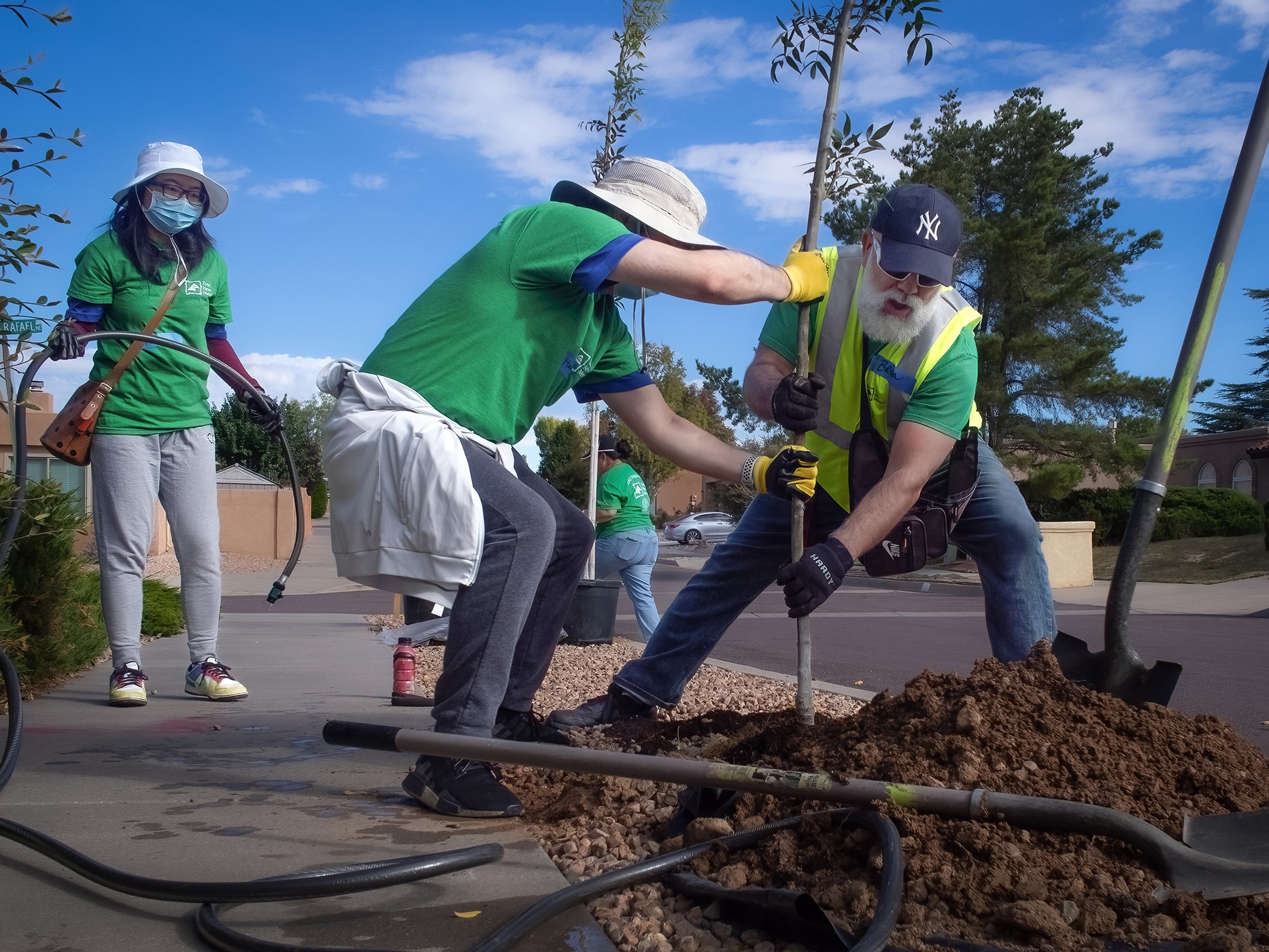
new trees in Albuquerque since 2017
Each ABQ NeighborWoods event increases the tree canopy by 200 trees: 100 planted and 100 given away, one neighborhood at a time. Funded by ABQ City Councilors or by the ABQ Parks and Recreation department, the program focuses on residential property because 85% of Albuquerque’s trees are located on private property.
Neighborhood volunteers support Tree New Mexico staff to canvas their neighbors, track trees with TreePlotter, and planting and giving away trees. Residents choose the tree species they prefer from our list. They agree to water and care for the trees and to call Tree New Mexico if they need tree care advice.
Since 2017, we’ve planted and given away nearly 11,000 trees at 47 events in Albuquerque. Our planted trees have an 80% survival rate after three years. View them here:
If you would like to bring the ABQ NeighborWoods program to your neighborhood, contact your Albuquerque City Councilor and connect with TreeNM by emailing plantinginquiries@treenm.org.
Upcoming planting events in Albuquerque:
See Us in Action!
Information for residents:
- Our goal is to create an impact with clusters of trees. We can plant anywhere within 20 feet from the street. Often we can plant in front and side yards if they are accessible.
- There are usually 8+ species of street trees available to choose from, in a variety of sizes and including both evergreen and deciduous options.
- Residents must care for the trees they receive and sign an agreement with the City of Albuquerque.
- Water rebates, or Treebates, may be available through the Albuquerque Bernalillo County Water Utility Authority.
Neighborhood Involvement:
Tree New Mexico asks that each applying neighborhood has:
- a group of around 5 lead volunteers to help us drive the project throughout the entirety of the organizing and planting process.
- enough homes to fit 100 new trees. Homes are able to receive up to two trees, if the front yard will fit them.
